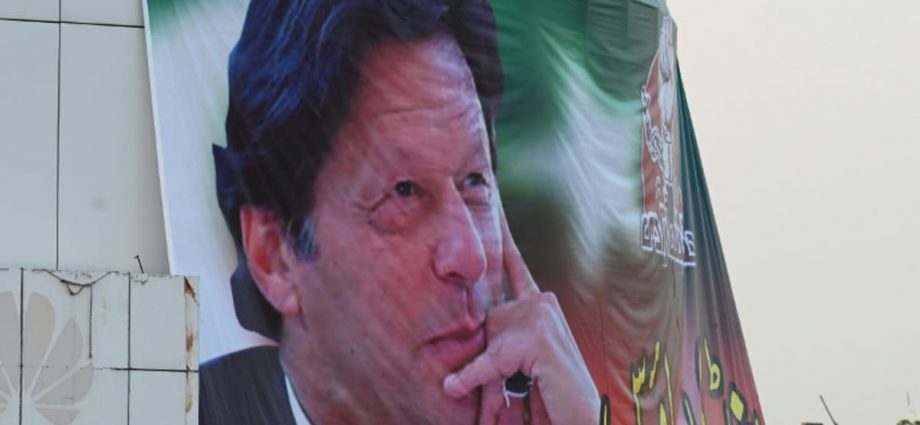
LAHORE: Police in Pakistan said officers on Sunday (Mar 5) attempted to arrest former prime minister Imran Khan, who is battling several legal cases as he pressures the government for early elections.
Officers from the capital, Islamabad, arrived at Khan’s home in Lahore, which was surrounded by hundreds of his supporters, but were unable to find him.
“A team of Islamabad police has arrived in Lahore to arrest Imran Khan to comply with the court orders,” Islamabad police said in a tweet.
“Imran Khan is reluctant to surrender – the Superintendent of Police had gone into the room but Imran Khan was not present there.”
The arrest warrant was issued after Khan failed to appear before the court in a corruption case on Feb 28.
Khan is accused of failing to declare gifts received during his time in office, or the profit made from selling them.
Government officials must declare all gifts but are allowed to keep those below a certain value.
The vice chairman of Khan’s Pakistan Tehreek-e-Insaf party, Shah Mehmood Qureshi, told reporters in Lahore: “We have received the notice from Islamabad police — the notice does not contain any order for the arrest.”
“We will consult our lawyers and follow the legal process”.
Pakistan’s courts are often used to tie up lawmakers in tedious and long-winding proceedings that rights monitors have criticised for stifling political opposition.
Khan, who was shot during a rally last year, has attempted to disrupt politics in the South Asian nation since he was forced out of office in a no-confidence vote in April.
He has been pushing for early polls due no later than October by holding protests, pulling out of parliament and dissolving the two provincial assemblies his party controls in a bid to force the government’s hand.
The nation of more than 220 million is in dire economic straits with runaway inflation, scant foreign exchange reserves and stalling bailout talks with the IMF.
To pull the country out of its spiral, Prime Minister Shehbaz Sharif is battling to revive the next tranche of a US$6.5 billion loan deal sketched with the International Monetary Fund in 2019.

